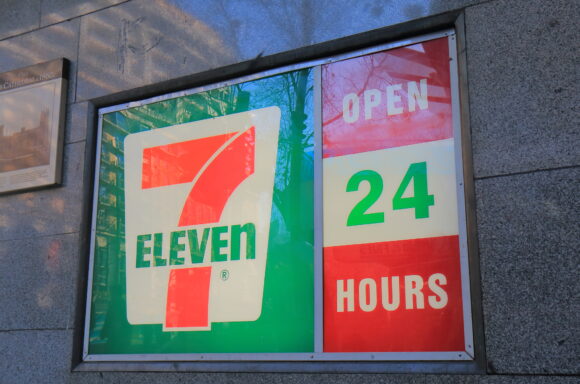Franchisees in Massachusetts can be considered employees rather than independent contractors and thus be entitled to the state’s minimum wage, overtime rules and other state worker law protections, the state’s highest court has ruled.
The ruling by the Massachusetts Supreme Judicial Court contradicts a ruling from a federal district court in a case where 7-Eleven convenience store franchise owners have been seeking damages for allegedly being misclassified as independent contractors.
The federal district court found that there was a conflict between a Federal Trade Commission rule governing franchises and the state’s law for determining if a worker is an employee or an independent contractor. The federal court said the federal rule trumped the state rule and, under the FTC rule, 7-Eleven franchisees are not employees.
The franchisees appealed that district court finding to the U.S. Court of Appeals for the First Circuit, which asked the state court whether it agrees that there is a conflict between the federal and state rules.
While refraining from applying the law to the underlying case, the state’s high court made it clear it disagrees, finding that there is no conflict between the state and federal rules, thereby letting the franchisees proceed with their damages suit in federal court.
“[W]e conclude that the independent contractor statute applies to the franchisor- franchisee relationship and is not in conflict with the franchisor’s disclosure obligations set forth in the FTC Franchise Rule,” the decision states.
According to the Massachusetts court, the FTC rule concerns franchisors’ obligations of disclosure to franchise owners, whereas the state’ s independent contractor law with its 3-pronged, or ABC, test applies to the relationship between franchisor and the individual franchisee.
The FTC rule is a pre-sale disclosure rule and it “does not regulate the substantive terms of the franchisor-franchisee relationship,” the court wrote.
The Massachusetts independent contractor statute establishes a standard for determining whether an individual is an employee or an independent contractor. Classification as an employee generally entitles an individual to timely payment of wages earned, holiday and vacation payments, and other benefits, as well as a private cause of action to enforce these rights.
The state statute sets forth a presumption that an individual shall be considered an employee for purposes of the wage statutes. An employer may rebut the presumption by establishing each of the following three prongs (known as the ABC test) by a preponderance of the evidence: the individual is free from control and direction in connection with the performance of the service, both under his contract for the performance of service and in fact; the service is performed outside the usual course of the business of the employer; and the individual is customarily engaged in an independently established trade, occupation, profession or business of the same nature as that involved in the service performed.
If any one of these criteria is not shown, the individual is classified as an employee.
Unlike other Massachusetts wage statutes that expressly exclude certain workers, the language of the independent contractor statute neither expressly includes nor expressly excludes franchisees from its reach. The state’s high court inferred from this and from the statute’s “broad remedial purpose” that Massachusetts lawmakers intended the criteria for identifying independent contractors to be applied to franchise relationship.
Lawyers for 7-Eleven argued that state lawmakers did not intend the statute to apply to franchises and warned that applying the ABC-test to franchisees “places the entire market for franchise relationships in the Commonwealth at risk.”
The court said 7-Eleven’s fear rests on the “faulty premise that application of the ABC test will result in every franchisee being classified as an employee” of the franchisor.
“To the contrary, despite 7-Eleven’s dire predictions that application of the ABC test to franchise relationships will end franchising in the Commonwealth, other courts have done so apparently without the predicted apocalyptic end of franchise arrangements in their respective jurisdictions,” the court wrote, adding that it also has applied a nearly identical ABC test in the franchise context, “yet franchising continues in the Commonwealth.”
According to the state court, compliance with the FTC disclosure requirements does not mandate that a franchisor exercise any particular degree of control over a franchisee. If a franchisor elects to exercise a significant degree of control, it might not be able to show that the individual is “free from control and direction in connection with the performance of the service,” under the first prong of the ABC test.
However, the court continued, even where the franchisor elects to exercise a significant degree of control, the FTC franchise rule’s disclosure obligations do not run counter to proper classification of employees under the independent contractor statute.
“A franchisor can comply with the FTC Franchise Rule to make the prescribed disclosures, and in situations where a franchisee is deemed an employee under the independent contractor statute, the franchisor can comply with its obligations under the wage statutes,” the decision states.
“[N]othing in the independent contractor statute prohibits legitimate franchise relationships among independent entities that are not created to evade employment obligations under the wage statutes.”
Employers who misclassify their employees in Massachusetts do so at their peril. Those who successfully show they have been misclassified can be awarded treble damages.
The state views employers who misclassify employees as independent contractors as enjoying a windfall in avoiding their statutory obligations to their workforce and shifting certain financial burdens to the state and the federal government. In addition, the court noted, misclassification gives an employer “an unfair competitive advantage over employers who correctly classify their employees and bear the concomitant financial burden.”
The court, citing facts from the underlying case, noted that while the 7-Eleven franchise agreements classify the plaintiffs as independent contractors, operators of the convenience stores sell products from 7-Eleven’s preferred vendors, utilize the 7-Eleven payroll system to pay store staff, and adhere to a host of other guidelines. They do not receive a regular salary; instead, each operator may draw pay the store’s gross profits, after paying various franchise fees “required by the franchise agreement to 7-Eleven for the privilege of doing business with it.”
The lawyer for the plaintiffs is Shannon Liss-Riordan, a well-known labor attorney who has represented Uber drivers and other plaintiffs in independent contractor cases. She is currently a candidate for state attorney general.
Organizations submitting amicus briefs in support of 7-Eleven included the Chamber of Commerce, the Life Insurance Association of Massachusetts, the Retailers Association of Massachusetts, and the International Franchise Association.
The Massachusetts Employment Lawyers Association, Massachusetts Attorney General Maura Healey, and the FTC submitted briefs for the plaintiffs.
Topics Legislation Massachusetts
Was this article valuable?
Here are more articles you may enjoy.



 Judge Awards Applied Systems Preliminary Injunction Against Comulate
Judge Awards Applied Systems Preliminary Injunction Against Comulate  World’s Growing Civil Unrest Has an Insurance Sting
World’s Growing Civil Unrest Has an Insurance Sting  Kansas Man Sentenced for Insurance Fraud, Forgery
Kansas Man Sentenced for Insurance Fraud, Forgery  Gun Accessory Company to Pay $1.75 Million to Buffalo Supermarket Shooting Victims
Gun Accessory Company to Pay $1.75 Million to Buffalo Supermarket Shooting Victims 

